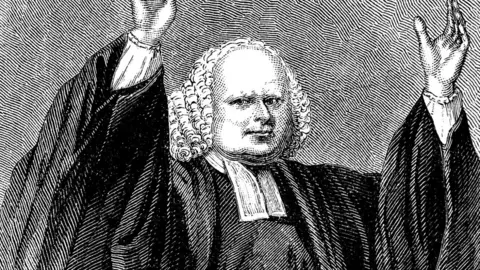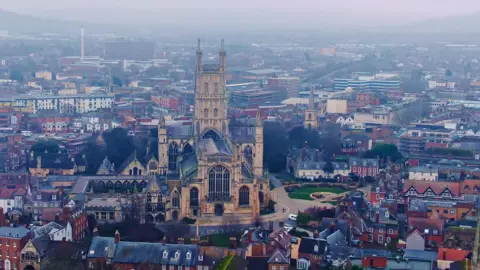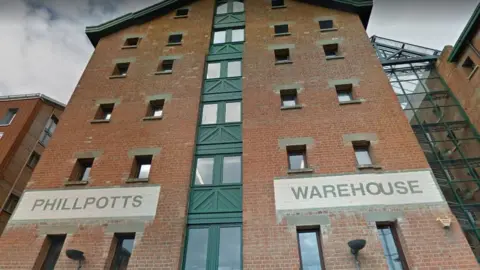Gloucester's links to slave trade outlined in new report
 Huw Evans picture agency
Huw Evans picture agencyA city's links to the slave trade have been outlined in a new report on monuments and statues.
Gloucester City Council says it wants to educate people on how some people connected to the area profited from slavery without "erasing" history.
The report raises the possibility some statues and other monuments could have extra context added to them to educate residents and visitors.
It also suggests some streets in the city could be renamed.
Two streets in the city are named after 18th Century preacher George Whitefield, who - while he campaigned against the cruelties of slavery - lobbied for it to be made legal in the USA and owned a plantation.
The report, compiled by the city council which involved a Race Relations Commission, suggests these streets could be renamed and extra context added to other memorials to Whitefield, who was born in Gloucester in 1714.
 Getty Images
Getty ImagesA city-centre statue of King Charles II, who founded the Royal African Company which transported about 150,000 slaves, is one of the memorials also discussed.
The report also outlined how Samuel Baker, the businessman who part of Gloucester's quayside is name after, made money from the transatlantic slave trade.
A 'complex history'
Philip Walker, head of culture at Gloucester City Council, said he hoped the publication of the report would lead to "constructive conversations".
"The next steps would be to see how we move forward as a city," he said.
"It's about raising awareness and letting people know about the complex history of the city at that time, and how some of these people have been memorialised."
 Google
GoogleCllr Richard Cook, leader of Gloucester City Council, said: "Our intention is not to erase this history but to shed more light over what happened so we can be more informed about our history."
The charity Discover DeCrypt, which runs St Mary de Crypt Church, where George Whitefield gave his first sermon, said it welcomed the report.
The Rector and chair of trustees, Rev Canon Nikki Arthy, said: "We lament the systemic failures of the past and the present, both in church and society.
"We are committed to love, respect, honour and care for each of our sisters and brothers."
The report will be discussed by Gloucester City Council cabinet members on 31 January.

Follow BBC West on Facebook, Twitter and Instagram. Send your story ideas to: [email protected]
